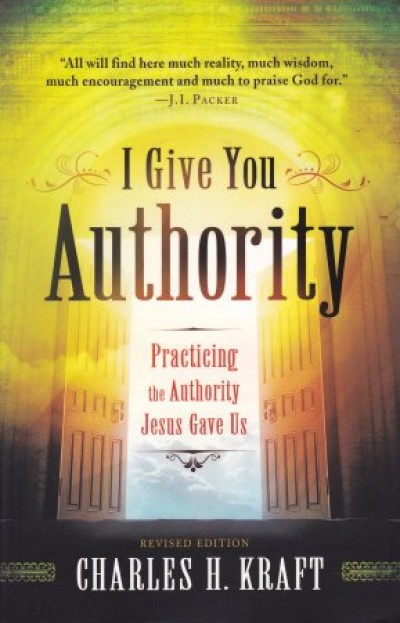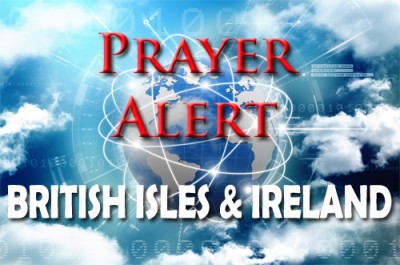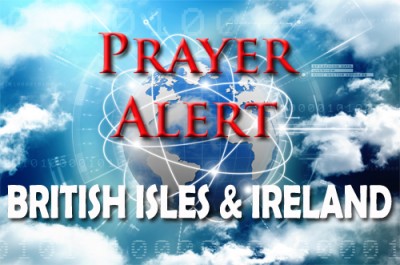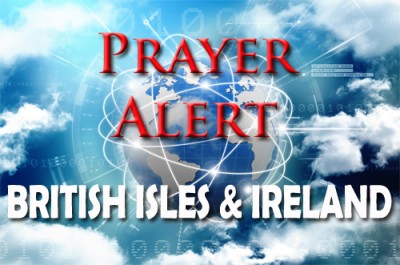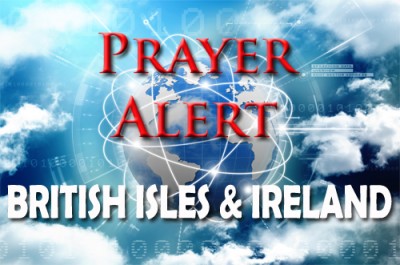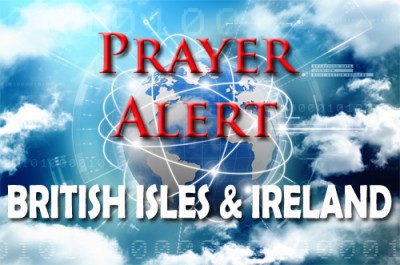Who among the gods is like you, Lord?
Who is like you—majestic in holiness, awesome in glory, working wonders? (Exodus 15:11)
Very truly I tell you, whoever believes in me will do the works I have been doing, and they will do even greater things than these, because I am going to the Father. (John 14:12)
Dr. Charles Kraft, a former professor of mine who has also become a dear friend and mentor is in his eighties and still going strong in a ministry of healing and deliverance. He has equipped many others to minister in a similar way and has written extensively about the spiritual authority we have in Christ. His writing, and especially his book, I Give You Authority, touches deeply on transformational prayer. I have been rereading this seminal book and recommend it to you if you can get a copy to read it all. Here I just wanted to share a few of his wise comments based on decades of ministry experience. The issue of our identity in Christ and the authority that flows to us through that all-important relationship impacts how we pray and how far we go in our expectations of how that all-powerful authority will flow through us.
Here are a few of his salient comments about the authority we have been given that I hope will encourage you as much as they have me:
“It is as if God has deposited a million dollars in a bank for us and either we do not know it or we cannot find the checkbook.”
“If we do not assert our authority over Satan he will assert his authority over us.”
“By virtue of our position, and the fact that God the Holy Spirit lives within us, we carry infinitely more power and authority than the whole satanic kingdom.”
“Jesus’ power came from being filled with the Holy Spirit. The source of his authority, however, was His intimacy with the Father. He spent hours and hours in prayer along with the Father, keeping in close contact with Him and cultivating that most precious relationship. As Jesus ministered, His ears were always open to the voice of the Father… Because He listened, He could take authority confidently, knowing He was acting in God’s purposes. Jesus’ intimacy with the Father enabled him both to maintain his authority and to get God’s instructions concerning what the Father wanted Him to do each day.”
“I have become convinced, through working in inner healing and deliverance, that the enemy’s primary area of attack is our self-image. He does not want us to discover who we are.”
Some important points relative to our identity in Christ that Kraft has identified are:
- We are created “only a little lower than God” (Psalm 8:5) and in the image of God Himself (Genesis 1:26)…
- As family members, we get to carry infinitely more power than all the satanic kingdom put together!
- We are children of the King. This is our true identity, giving us special rights and privileges with our famous Father. We have among other things special permission as his princes and princesses to come into the King’ mans presence at any time…
- By His grace God actually trusts us! … In the spiritual realm we carry the same authority as God’s princes and princesses. When we understand that identity and use the power of Jesus’ name appropriately, the spiritual realm has to obey. We have every spiritual blessing in the heavenly world available to us (Ephesians 1: 3)… we must never forget who we are, even when we do not feel like it.
- Spiritual authority, then, is part of who we are. It is recognized by God and by the enemy world as flowing from our very beings… as Christians we have no choice as to whether or not we possess this authority. It comes in the package when the Holy Spirit is given to us. Like a credit card.”
“Our task is to get our wills lined up with the will of Jesus and the Father, and on that basis to exercise the authority they have given us. This comes for us, as it did with Jesus, from spending time in prayer and fellowship with God in private, listening to Him to get his instructions and to line up our wills with His. Then we receive from God the necessary power and authority for the specific task ahead of us. Our aim in our relationship with God should be nothing short of total intimacy. Again, Jesus is our model.”
Charles H. Kraft, I Give You Authority: Practicing the Authority Jesus Gave Us (Chosen Books, 1997)
John Robb
IPC Chairman
Inspiring testimonies from Olympians
26 Aug 2016David Boudia and Steele Johnson won silver in the men’s synchronised diving and told NBC they both know their identity is in Christ and not competition results. Swimmer Madeline Dirado won gold in the women’s freestyle relay, silver in the women’s 400m individual medley and bronze in the women’s 200m individual medley. She said, ‘Knowing that I’m a child of God and that His love for me is determined by nothing I can achieve or do on my own has given me a quiet confidence.’ New Zealander Nick Willis told the Bible Society that becoming a Christian had changed his whole motivation for sport. Christine Ohuruogu won three global titles and said, 'It’s obvious I want to win, but I never pray to win. I just pray, “Help me do my best”.’ Gabby Douglas, one of the US gold-winning gymnastics team, said, ‘I love sharing my story and my faith. God has given me this amazing talent, so I'm going out to glorify His name.’
Soul Survivor: 1,500+ new Christians
26 Aug 2016Over the past four weeks, 1,527 young people have made commitments to follow Jesus at the Soul Survivor summer festivals. Organisers say 26,000 attended the five different events, which took place in Scotland, Staffordshire and Somerset. Those gathered at the conferences heard speakers such as Tim Ross from Texas, Mike Hands from Australia, Miriam Swaffield, and Archbishop Justin Welby. Each week thousands took part in a giant pulled-pork picnic, silent discos, UV parties, a huge ceilidh (sing-along dance), and Colour Chaos dry paint parties. But most importantly young people stepped out and prayed for one another, heard from God and received the Holy Spirit passion to see God moving in power in churches throughout the UK and beyond. They gave their lives to serve God, fulfilling His purposes for them to grow and serve in everyday life.
Trumpet Call
26 Aug 2016Excitement and expectation are growing. We hear of deeper praise, more healings, authoritative prayer, words of prophecy and the gospel taking to the streets. Many believe it is time to invite awakening into our land, into where we live, our church, our workplace. It is time to seek God, spend more time with Him, desiring to come into a deeper relationship with Him. Many are excited about Trumpet Call but we do not want to get transfixed on an event. It is what the trumpet is calling into being that should excite us. We believe God is going to reveal greater depths, colour and vibrancy to the Gospel. This Trumpet Call announces good news to our nation and the nations. Prayer Alert readers are invited to join in a day of prayer and worship that will release God’s purposes on Saturday 15 October at the International Convention Centre in central Birmingham.
Media anti-Christian bias
26 Aug 2016David Robertson said he is reading or hearing about victorious Christian athletes every day - except on the BBC. Usain Bolt is a professing Christian. He prays and gives thanks to God, before and after each event. BBC News headlined with Bolt winning gold and went on with an in- depth interview about his background, with no mention at all of his faith. If Bolt was gay or transgender would the BBC ignore that? How would media cover Eric Liddell’s refusal to run on a Sunday? Have the BBC and other media outlets moved away from their Christian heritage and neutral and fair reporting, or are they airbrushing Christianity from mainstream culture? Is there an establishment bias against real Christianity and an encouragement of their own version of Christianity of nice religious organisations who know their place, providing appropriate non-challenging ceremonies and helping to provide social welfare in times of austerity?
Only partial apologies by bishops
26 Aug 2016Church of England bishops have been instructed to give partial apologies to victims of child sex abuse by clergy, to help minimise the cost of being sued. Confidential legal advice to bishops seen by The Telegraph said that the furthest the bishops should go was to ‘express regret’. It warns bishops to be careful before meeting victims, and not to do so without first talking to a lawyer. It warns of the ‘unintended effect of accepting legal liability’ for sex abuse and ‘inadvertently’ conceding guilt. The advice was issued in 2007 and replaced last year. The latest revelation comes after a review earlier this year found that at least three clergy, subsequently made bishops in the Church of England, failed to act over credible claims of sadistic sexual abuse disclosed repeatedly by a survivor over forty years.
Atheist handbooks given to Scottish parents
26 Aug 2016The Enlighten Up campaign is an initiative of Humanist Society Scotland (HSS), to promote ‘a fair and inclusive education system where pupils and teachers are not discriminated against because of their religion or belief.’ However, HSS’s head of communications said their ultimate objective is to see religious observance scrapped and replaced with a more inclusive activity, such as philosophy. The campaign is providing parents ‘concerned about religious influence in schools’ with an atheist handbook. Scottish law requires public schools to host at least six religious observance sessions a year. HSS has produced two handbooks to help challenge teachers entitled A Guide for Non-Religious Parents and A Guide for Non-Religious Young People. The books include advice on how to opt out of religious observance and how to make a complaint when someone feels their rights have not been respected. HSS also provides templates for opt-out letters.
GCSE A*-C grades fall drastically
26 Aug 2016National GCSE results have fallen dramatically across the board, with the proportion who gained a C grade or above dropping by an unprecedented 2.1% compared with last year – including a sharp decline in the numbers gaining a C or above in English. The falls are due in large part to new Government policies that force 17-year-olds who got a D or lower in English or maths last year to resit those exams, meaning more students overall were sitting the tests. But some of the fall is unexplained. Of pupils taking their exams in year 11, the normal GCSE year, the proportion gaining A*-C grades was down by 1.3%. The female dominance in the exams continued with the gender gap increasing slightly (by 0.5%) this summer, with 71.3% of girls awarded at least a C grade, compared with 62.4% of boys.
